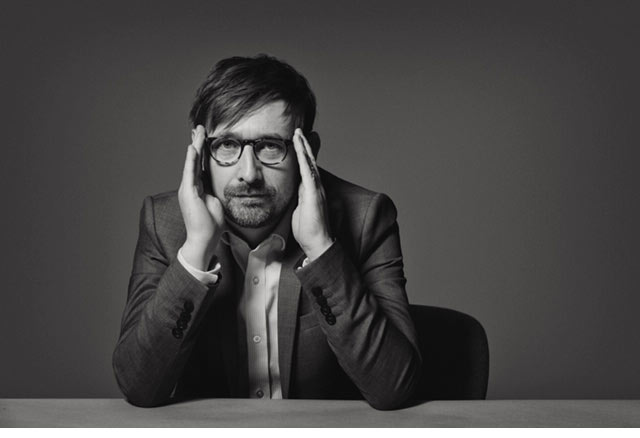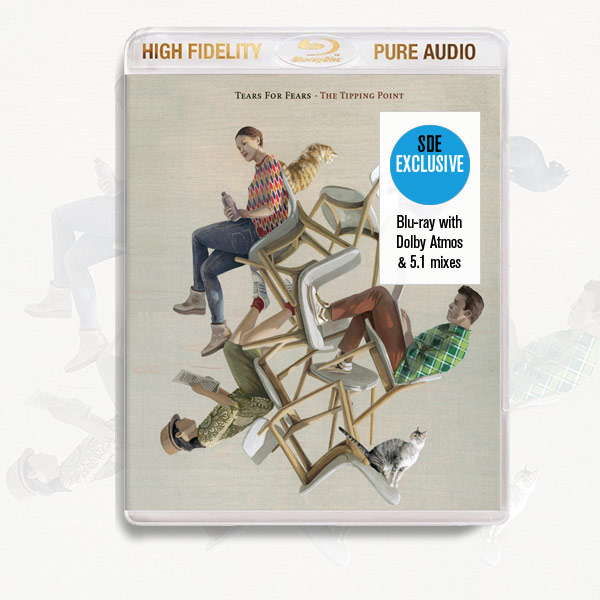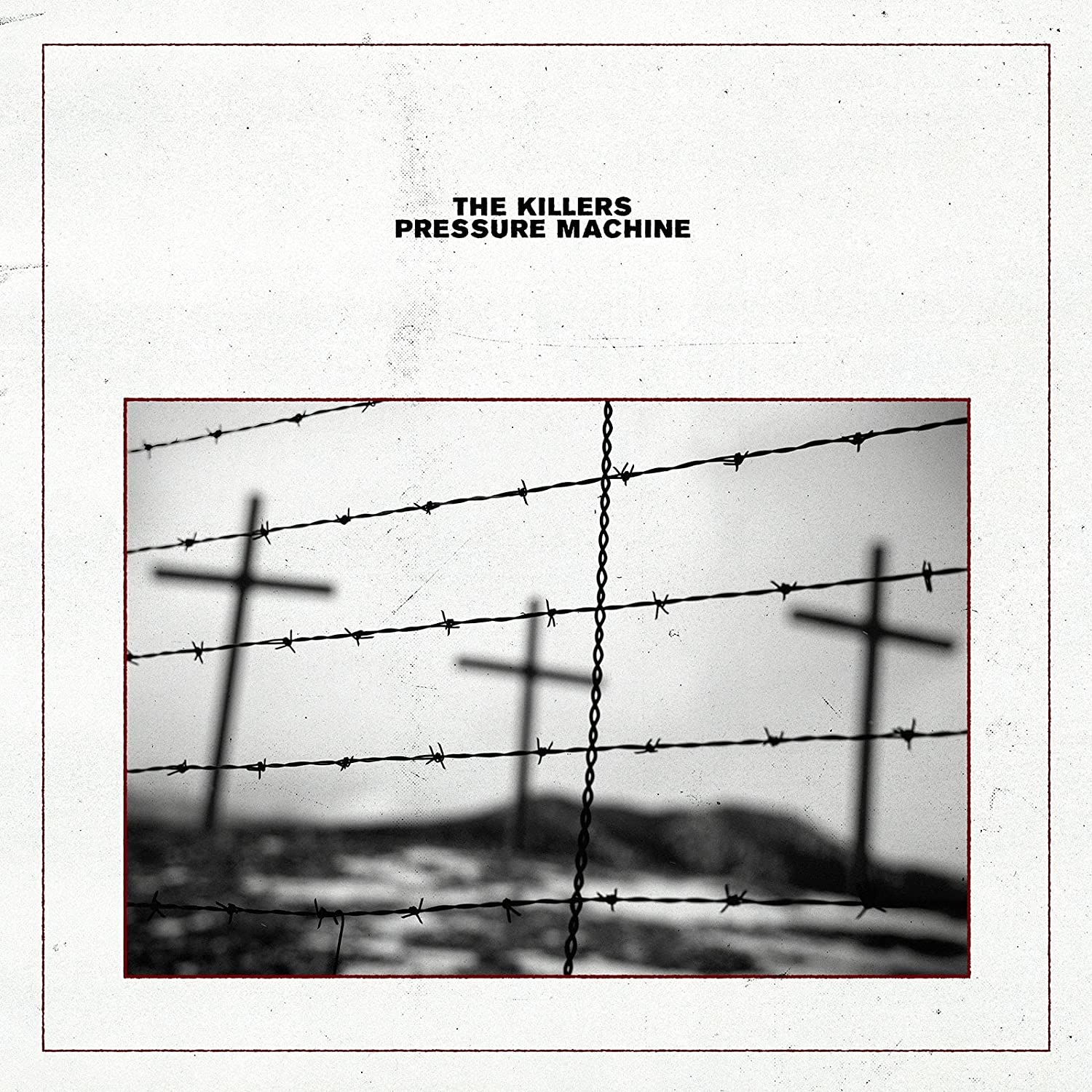Neil Hannon talks to SDE about The Divine Comedy’s Office Politics

The Divine Comedy have just scored the highest UK chart position of their career with Office Politics, which entered at number five last week. SDE caught up with DC main man Neil Hannon a few weeks back, to talk about the new album…
SuperDeluxeEdition: Let’s talk about your new record then…
Neil Hannon: Alright.
SDE: Office Politics… when did you start recording? Was it a long process? Because of course it’s a double album.
NH: Yes. Well we started recording it… I guess two years ago, although most of the writing took place with all the stuff that became, Foreverland, the last album. I just kind of had an almighty splurge and we naturally divided into two sort of camps and I put the ones that sounded more Divine Comedy first and left all the crazy shit for later [laughs]. And yeah, it took a long time to kind of really craft into a record but I kind of wanted to make a double album and I thought this was the time to do it because there was so much material.
SDE: I was going to ask you that; whether you had a little ambition to make sure you had a double album at some point.
NH: When the last album came out I still had about 20 songs left over, so I thought well if this isn’t the time for a double album, I don’t know what is. And I did have a hankering just because of Out of the Blue by ELO which is like the first record that I was obsessed with really as a kid. I had to do it at some stage and now I have.
SDE: Once you’d decided that you were making it a double album what kind of freedoms or flexibilities do you think that that gave you?
NH: Well the best thing is it gives you the freedom to put on some of the odder stuff that generally gets edited out. And I’m beginning to think, certainly as time moves, that the odder stuff can often be just as kind of useful and interesting as the well crafted songs. Not that they’re not well crafted odd things [laughs] but I just think it gives you a little more room for manoeuvre on a 60 minute album … because if it was literally all well-put-together pop songs – three and a half to four minutes – for an hour, you would get sick of it, so you have to have sort of strange, eccentric moments.
SDE: So for the stranger things you’re obviously talking about songs like Psychological Examination and The Synthesiser Service Centre Super Summer Sale, etc.
NH: Yeah, exactly. And Philip And Steve’s Furniture Removal Company
SDE: Would it fair to say that this is kind of a concept album of sorts? I mean you seem to have a lot of themes around work, office, machines, etc.
NH: No, I would never call it a concept album because I think all my records could be called that if you call this one that. They generally tend to coalesce around a certain idea or theme, or just umbrella vibe and this one, you know, I think if I’d put a slightly different set of songs together in a different order, you would have got a different sort of idea from it. It’s almost like Derren Brown’s suggestion…you know, if you call it ‘Office Politics’, you start with a bunch of songs which contain a song called ‘Office Politics’ and one about sacking people and you put people in an office on the front cover, you know, then suddenly “Oh, it’s a concept album”. But at the end of the day there’s very few other songs on the record that are specifically, you know…. [although] they do tend, more than on previous records, to be about people in maybe their places of work, like ‘Opportunity Knox’ and stuff.
SDE: You mentioned the cover. Clearly you didn’t have to put that kind of cover on the record which…
NH: Some people would say “You REALLY didn’t have to put that kind of cover on there”. But I like it!
SDE: Tell me about the thinking behind the cover then
NH: Well, it was primarily because it was a double album but I was sort of harking back to covers from the ‘70s and early ‘80s that I remembered. I wanted one of those double album covers where you kind of get sucked into it and there’s lots of little stories and details going on. And you know that you could stare at as a kid for hours and go “Oh I never saw that before”, you know. And that sort of tableau idea with different sort of characters was useful for doing that.
SDE: Have you ever worked in an office or had that kind of job where you are photocopying, etc
NH: No [laughs]. I’m one of those crazy good-for-nothings who has never had another job. I mean, the one time I was employed was by my dad, to cut the hedges at the back of the house, and I almost cut my finger off and I took that as a sign. I went to an interview once and they looked at me and went “Oh that’s not happening today” [laughs]. So yeah, I really don’t how I’ve managed it, but I am truly blessed and so is the world of work for not having me. But you know, I think that I put a lot of real protestant work ethic into my job, as it is, so I don’t feel guilty at all. Offices, yeah, I’ve been in a lot of offices just through work, you know.
SDE: Record company offices and that sort of thing?
NH: Record companies, radio stations and TV, they all have offices and you always end up in them and you’re kind of sat there looking at people and feeling the vibe of quiet desperation.
SDE: With this album, were you in any way trying to get away from the sort of ‘Chamber Pop’ tag? There’s a variety of styles. You’ve got Infernal Machines which has that kind of glam rock Doctor Who vibe going on.
NL: Yeah. It wasn’t that I was consciously trying to get away from it because I love it and I’m almost certainly going to do it, you know, again. I just I kind of just tried not to think about it. As I say, a lot of it was happening in a big splurge, sort of 2013-14 and I had sort of consciously to myself said “Just write a lot of music and don’t think about albums”. And as a result it went all over the place and you know, I had my synth there and it’s kind of the first time where I’ve allowed them to be on the album. And I think that was primarily because of the subject matter, they just suited. Because, you know, there is a kind of an atmosphere, I don’t mind the sort of crazy anachronisms of image and musical genre, in fact I get off on it, really. And I enjoyed kind of setting the office and work sort of scenarios in a music that reminded me of kind of people with mullets and bad perms [laughs].
And it’s a very nostalgic record, in a way, because a lot of the styles and instrumentation is very reminiscent of sort of when I really first started getting into pop music in the late ‘70s, early ‘80s, when I was a kid. And that’s before I discovered Scott Walker or Michael Nyman.
SDE: What were your working methods for this album? Were you laying down a lot of the instrumentation yourself, did you make some demos and bring in a band to help you or how did that work?
NH: Well you know, certainly with the way I work these days, the two seemed to have merged, rather. I’m almost slightly worried about it, but when you go to make a demo, you know, you’re working on Pro Tools with proper microphones and compressors and things and, you know… my front room might not look at all like a studio but in the end the quality is very similar. So more often than not, you know, things that you did at the very beginning of the process just to get something down ended up on the bloody album and it’s terrifying in a way [laughs].
But then again, I sort of do tremendous amounts of different arrangements, some songs more than others. And then when the guys were for Electric Picnic, the festival not far from us here, we took the opportunity to decamp to my house and record with the drums in the sitting room and the bass in the hall, etc. That was good laugh. I mean maybe about two-thirds of the eventual record comes out of those sessions.
SDE: Is that way of working almost a necessity these days, in terms of the economics of the industry…
NH: Well if it is, it doesn’t really work. Because, you know, you still have to pay everybody concerned, every day. I guess I saved on the catering bills just through being frugal in Tesco’s. But no, we always end up in, you know, flash studios in London, in the end. It’s funny, there is really no shortcut to take I think. If you want a record that sounds like the classic records that you grew up with, you have to kind of do it properly.
SDE: Are you still a strong believer in the album as an art form because there’s lots of artists now releasing a few singles every now and again, putting things on streaming…perhaps even waiting to see whether it’s even worth putting out an album.
NH: Well each to their own. I mean I am from a different era, I don’t mind saying that. I personally will never get away from the idea of, you know, the two to three year process of making a record.
Obviously artists at the beginning, when they’re all fresh and lovely and exciting, they could get away with sort of just doing a tune every now and again. But when you’ve been at it 30 years people will literally just get bored and turn off after a while. So it’s really good to give them breathing space, you know, and then it’s like “I’ve suddenly realised I haven’t seen The Divine Comedy around for about two years…”. And that’s helpful and then you have a big splurge, lots of promo, a new album, and then you go away again and I think that’s a pretty good call.
SDE: It’s weird though, because not everyone does the ‘going away again’ thing. They’re on social media saying “Here’s me having my lunch in the local pub” or whatever. But I do subscribe to that idea that. It used to be good when people would disappear and they’d come back with a new haircut or a new style.
NH: Yeah, I mean it’s very dangerous at the beginning of your career to go away and I didn’t for about four years, I was just like literally, I felt nervous if we were out of the public eye for a month because, you know I’d schooled myself on the techniques and I knew that that was dangerous.
SDE: Do you miss ‘the old days’… I mean physical singles don’t really exist anymore do they? So you’ve got the new single off this record is ‘Norma and Norman’ and they’ll be a video on YouTube etc and people can watch it. But there won’t be a physical single, there will be no appearance on Top of the Pops, no getting into the Top 30, or whatever, because those days have kind of gone. Do you miss that aspect of releasing a new record?
NH: Well, I mean I don’t find that I particularly miss it myself, because I’ve felt like those days were pretty much gone anyway from about, 15 years ago. You know, in terms of me being on Top of the Pops, if the opportunity was there. Or Radio 1… it completely moved on and that’s fine. But I miss it on behalf of the young people in their groupings… because it really kind of led an excitement and a week-to-week kind of interest value to the whole thing.
You know, the whole thing is conducted on social media, pretty much, now and I hope that’s excitement enough. The wonderful thing about Top of the Pops was that you would end up sitting there with your mum or your granny and so it was more of a kind of communal focal point of pop and you know everybody could sort of say what they thought about Boy George [laughs]. And so now it’s like the older generation seems very cut off from sort of pop culture in a way I think, which is not healthy.
SDE: Do you still buy physical music yourself and do you buy vinyl? Do you buy box sets? Do you partake in all that kind of thing?
NH: I still buy the odd vinyl record, yeah. I don’t get out very much to buy anything really. All my record buying seems to happen when I’m on tour. I’m not a great collector, you know the sort to quote B-side serial numbers. I’ve come to realise that I’m probably more of a singles man than an albums man, weirdly, considering what I do.
SDE: What do you think of the idea of you know going back and reissuing albums and digging out old demos and alternative mixes and all that? I mean can you see yourself ever really digging back into your archives and putting that kind of stuff out?
NH: In ’99 the ‘Best Of’ came out then and we did a rarities thing that went along with it. But even then it was quite hard to find enough kind of genuine off cuts of use because I mean a lot of bands tend to do multiple versions of things. I’ve not ever been that sort of person.
SDE: So you get it right the first time then?
NH: Well either that or after a couple of hours work I think “This is a terrible idea, I’m binning it”, you know. So it never really even saw the light of day. Next year I think we’re planning to do a bit of reissuing of some Best Of perhaps, because it’s kind of got to 30 years, and it’s 20 years since the last best of. And yeah, still not quite sure how we’re going to do it. But yeah, I hope that’s enough for a bunch of people. I do kind of concentrate on the album as how I want people to see me and perhaps I am little bit like unsure of showing them the soft underbelly. It’s like, you know, would, did Leonardo want people to see his sketches? [Although] they were very good sketches.
SDE: You’re on tour in October with Office Politics, so what can fans expect from that?
NH: So, it will a rip-roaring riot of R-rated…[pause for effect] I don’t know!
SDE: You’re not going to do that thing where you play the album from start to finish?
NH: I’ve decided against that, after much thought. I kept going backwards and forwards on the idea. But at the end of the day I thought, literally, I just can’t do that to people [laughs], they’re paying good money, they want a nice entertaining evening. We’ll do plenty from the new album but the new album is so long it would take up like two-thirds of the show, so no.
SDE: And also, however great the record is, when you do a whole album in order it takes away a lot of the fun and spontaneity of the evening doesn’t it?
NH: Yeah. You know, I agree, I think it’s to be done very sparingly really. And with this album a lot of it is unplayable in a way that not many of my songs are. But you know, I hope that it won’t be too embarrassing, you know, watching middle aged men jumping around.
SDE: Well let’s finish on the new single then. Tell me a little bit about Norma and Norman. To me – and maybe that’s why it’s chosen as a single – it sounds a little bit more conventionally ‘Divine Comedy’ that some of the other songs on the album.
NH: Hmm. Well I’m glad to hear it. Even though it kind of uses a sound-scape that is not quite usual. In fact I remember I did a ISDN [interview] to some BBC station the other day, and you know, the feed came up and they were playing a song and initially I thought “Oh it’s Cliff Richard”, and then it turned into Norma and Norman [laughs]. So yeah, it’s like ‘funny period’ Cliff Richard, which is no bad thing in my book. But no, I think what’s very ‘Divine Comedy’ about it is the song itself really and the lyric; going from one end of peoples’ lives to another with a few bad jokes in between.
Thanks to Neil Hannon who was talking to Paul Sinclair for SDE
The new album Office Politics is out now and tour dates for October can be found here.
Compare prices and pre-order

The Divine Comedy
office politics - 2CD deluxe

|
|
||||||||||||||||||||||||||||||||||||||||||||||||||||||||||||
Compare prices and pre-order

The Divine Comedy
office politics - 2LP coloured vinyl

|
|
||||||||||||||||||||||||||||||||||||||||||||||||||||||||||||||||||
![]()
Office Politics 2CD
CD1
- Queuejumper
- Office Politics
- Norman And Norma
- Absolutely Obsolete
- Infernal Machines
- You’ll Never Work In This Town Again
- Psychological Evaluation
- The Synthesiser Service Centre Super Summer Sale
- The Life And Soul Of The Party
- A Feather In Your Cap
- I’m A Stanger Here
- Dark Days Are Here Again
- Philip And Steve’s Furniture Removal Company
- Opportunity’ Knox
- After The Lord Mayor’s Show
- When The Working Day Is Done
CD2 (Swallows and Amazons – The Original Piano Demos)
- Whistle For A Wind
- The Swallow
- The Conquering Heroes
- Fighting Swallow
- The Amazon Pirates
- The Parley
- Better Drowned Than Duffers
- Let’s Make The Best Of It
- Navy Stroke
- Like Robinson Crusoe
- Titty’s Dream
- The Conquering Heroes, Victory Chorus
- The Black Spot
- The Parley – Flint’s Apology
- Swallows And Amazons Forever
Office Politics 2LP vinyl
- Queuejumper
- Office Politics
- Norman And Norma
- Absolutely Obsolete
- Infernal Machines
- You’ll Never Work In This Town Again
- Psychological Evaluation
- The Synthesiser Service Centre Super Summer Sale
- The Life And Soul Of The Party
- A Feather In Your Cap
- I’m A Stanger Here
- Dark Days Are Here Again
- Philip And Steve’s Furniture Removal Company
- Opportunity’ Knox
- After The Lord Mayor’s Show
- When The Working Day Is Done

 Interview
Interview

 Reviews
Reviews

By Paul Sinclair
32